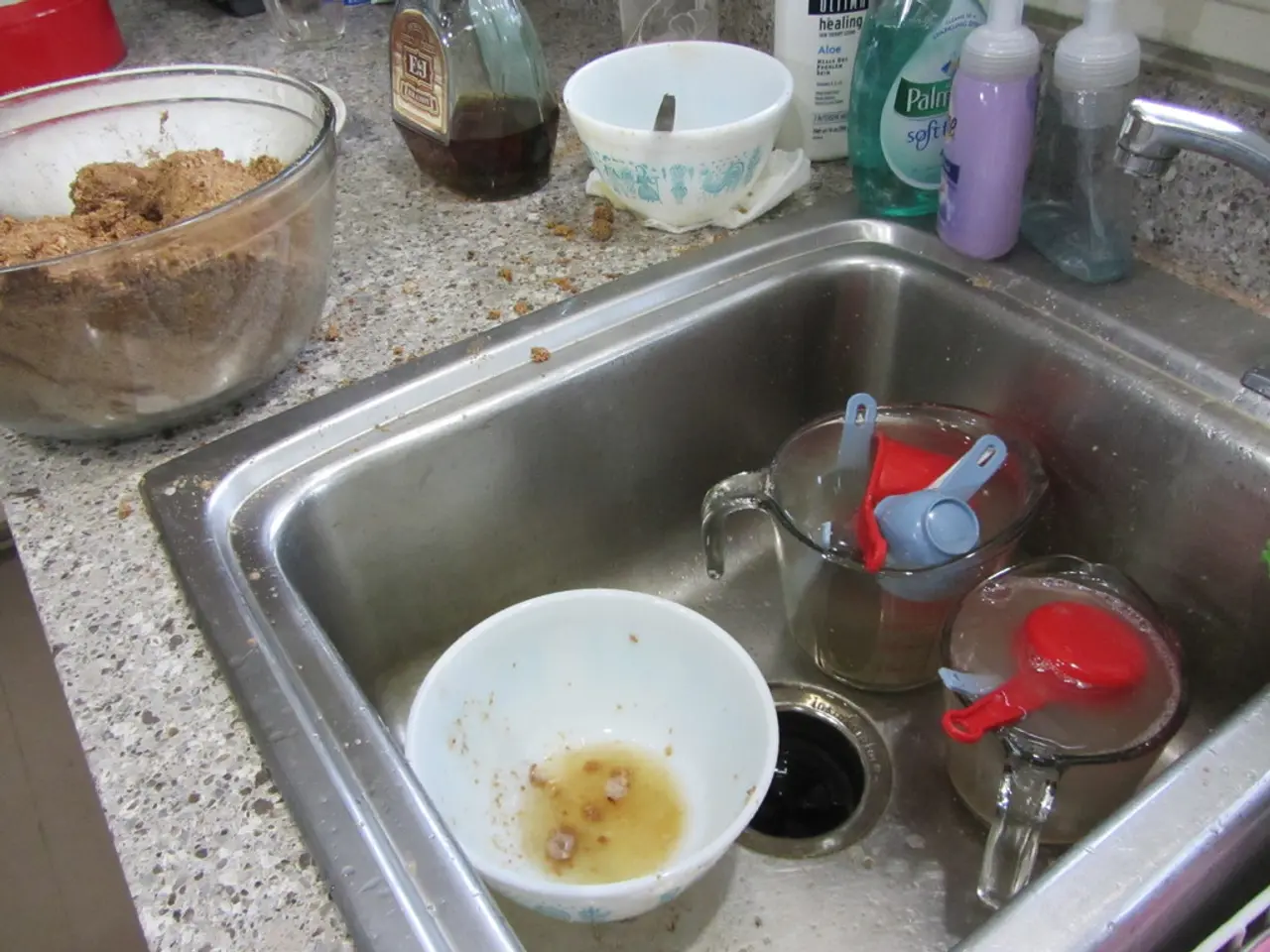Are probiotics effective in treating diarrhea and are they safe to consume?
Probiotics Effective in Managing Various Types of Diarrhea
Probiotics have been found to be beneficial in managing various types of diarrhea, with a particular focus on acute diarrhea, antibiotic-associated diarrhea, traveler’s diarrhea, and diarrhea-predominant IBS (IBS-D).
Research has shown that certain specific strains of probiotics have a strong evidence base for reducing the duration and severity of diarrhea and restoring gut microbiota balance. Among these, the yeast strain Saccharomyces boulardii CNCM I-745 and the bacterial strain Lactobacillus rhamnosus GG (LGG) stand out as particularly effective.
Saccharomyces boulardii CNCM I-745 has been well-documented for its ability to prevent and reduce antibiotic-associated diarrhea, traveler’s diarrhea, and support the recovery of the gut microbiome. It is unique in that it can be taken alongside antibiotics without being destroyed.
Lactobacillus rhamnosus GG (LGG) is a highly studied strain that has been shown to be effective in shortening the duration of acute and infectious diarrhea, including in children. It is also beneficial for IBS-D.
Other probiotics, such as Bifidobacterium lactis and Lactobacillus plantarum 299v, have been found to help promote gut regularity, immune support, and restore intestinal balance, providing benefits in diarrhea and IBS symptoms.
Lactobacillus species like L. acidophilus and multi-strain probiotic combinations can also improve gut health and support recovery from diarrhea, though they may be more targeted towards symptoms like bloating and overall balance.
The mechanisms by which these probiotics help diarrhea include replenishing beneficial bacteria lost due to infections or antibiotics, inhibiting pathogenic bacteria, enhancing gut barrier function and modulating immune responses, and suppressing inflammation in the intestinal lining.
When it comes to diarrhea, the following probiotic strains have been found to be effective:
- Acute & Infectious Diarrhea: Saccharomyces boulardii CNCM I-745, Lactobacillus rhamnosus GG (reduce duration and severity)
- Antibiotic-Associated Diarrhea: Saccharomyces boulardii CNCM I-745, Lactobacillus rhamnosus GG (yeast strain unaffected by antibiotics)
- Traveler’s Diarrhea: Saccharomyces boulardii CNCM I-745 (preventative and therapeutic use)
- IBS-D (Diarrhea-predominant IBS): Saccharomyces boulardii, Lactobacillus rhamnosus GG, Bifidobacterium lactis, Lactobacillus plantarum 299v (symptom management and gut balance)
This consensus is based on evidence from numerous clinical trials and expert reviews up to 2025. The selection of probiotics should be strain-specific for the diarrhea type and individual patient needs. Yeast-based probiotics like Saccharomyces boulardii are particularly valuable when antibiotics are involved.
For maintaining general gut health or in specific populations (such as women), other strains like Lactobacillus acidophilus or Bifidobacterium species may complement diarrhea treatment. However, it is important to note that no probiotic is an approved treatment for diarrhea, as scientists are still learning about them. If symptoms worsen or keep recurring, a person should speak with a doctor.
When trying probiotics, it may be beneficial to start with a low dose and work up to the recommendation from a doctor or the product label. A higher CFU does not necessarily mean the product is better or that it will be more effective. Probiotics may have side effects such as gas, bloating, or digestive changes.
It is also worth noting that the Food and Drug Administration (FDA) has not yet approved probiotics as a treatment for any health condition, including diarrhea. The American Gastroenterological Association recommends against using probiotics for acute infectious diarrhea in children.
Finally, it is crucial to remember that acute diarrhea is defined as a person experiencing three or more loose stools daily, lasting less than a week. Infections are one of the causes of acute diarrhea. If you are experiencing severe diarrhea, bloody diarrhea, fever, signs of dehydration, or symptoms that do not improve or that go away and then come back, you should speak with a doctor. People with compromised immune systems should not take probiotics due to the risk of an opportunistic infection.
Read also:
- Exploring the Strength of Minimally Digestible Diets: A Roadmap to Gastrointestinal Healing
- Secondhand Smoke: Understanding its Nature, Impact on Health, and Additional Facts
- Could a Secret Heart Rhythm Device Infection Be Causing Your Illness?
- Child Water-shift Ailment Identification and Treatment: Recognizing Symptoms and Steps to Take





